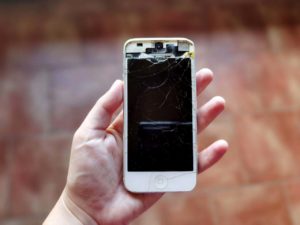Recycling e-waste: A step toward circular economy
From laptops and mobile phones to solar panels and precision-ag drones, all electronics come with an expiration date – some far earlier than others. (That’s called planned obsolescence.) Although we collectively need to demand less toxic mining practices, the universal right to repair, and much longer lifespans for all gadgets and gizmos, it’s still vital to consider what happens to them after they’re no longer useful. What should become of the plastics and metals in an appliance anyway?
Electronic wastes are important to recycle because they contain hazardous substances – such as lead, mercury, and hexavalent chromium – that adversely affect human health and the environment, in addition to valuable components like gold, silver, and copper. Globally, e-waste is a growing problem. A recently published United Nations report found 53.6 million metric tons were dumped in 2019 – of which, only 17.4 percent was properly recycled.
According to Manrique Arguedas, coordinator of EARTH’s Environmental Action Unit, working toward a circular economy is the only solution. “In the circular economy model, there is zero waste at the end of the production chain. Each component becomes part of an initial process and serves as an input for the creation of a new article,” he says. “It’s a system that maximizes efficiency of resource use, starting from ‘reduce, reuse, recycle’.”
Electronic waste must always be separated from everyday trash. That’s why, for several years, the Environmental Action Unit has partnered with Fortech to execute our annual campus e-waste collection – the latest of which was held earlier this month. “Each year, we ask the EARTH community to accumulate their electronic wastes until we have an active drive,” Arguedas adds. “These campaigns serve two purposes: First, to safely dispose of the e-waste we generate during academic and operational activities, and second, to allow residents of the Guácimo Campus to responsibly get rid of their unneeded household electronics.”
Thanks to Fortech’s support, our annual e-waste campaigns successfully divert toxic products from landfills while also raising awareness about conscientious consumption and the circular economy. Learn more about Fortech’s work by watching this video (in Spanish):





